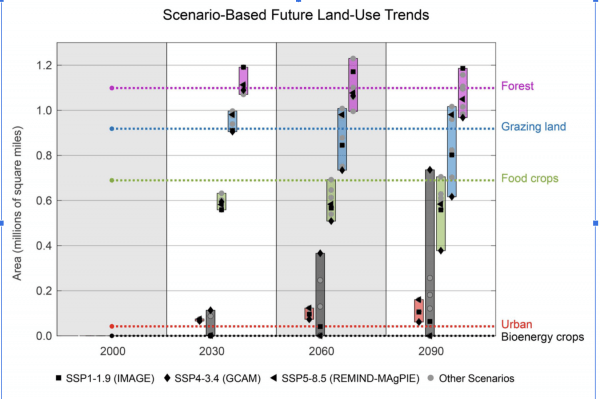GEOG Researchers Contribute to Fifth National Climate Assessment
Associate Research Professor Louise Chini and Research Scientist Ben Poulter recently co-authored the “Land Cover and Land-Use Change” chapter of the Fifth National Climate Assessment, which was released by the White House earlier in November.
The Fifth National Climate Assessment (NCA5) is the U.S. Government’s preeminent report on climate change impacts, risks, and responses. It is a congressionally mandated interagency effort that provides the scientific foundation to support informed decision-making across the United States. The “Land Cover and Land-Use Change” chapter of NCA5 was written by 11 authors from multiple federal agencies, government research labs, and universities.
The chapter includes three Key Messages about (i) how climate change threatens the goods and services provided by land systems, (ii) how changes in climate and land use affect land-system resilience, and (iii) how mitigation and adaptation priorities will increasingly constrain future land-use options.
NCA5 is based in part upon a review of recently published scientific literature and databases; the Land-Use Harmonization 2 (LUH2) data produced by Chini and Associate Chair and Professor George Hurtt was used to inform some of the content in the “Land” chapter, especially with regards to projections of future land-use choices.
The research team has been working for over two years on NCA5, a process which included public engagement workshops and multiple reviews by federal agencies and the National Academies of Sciences, as well as an upcoming public webinar for each chapter. NCA5 can be viewed online here.
Image: Future land-use scenarios describe a wide range of possible land-use changes in the United States. Courtesy of Chini.
Published on Thu, 11/30/2023 - 16:45


